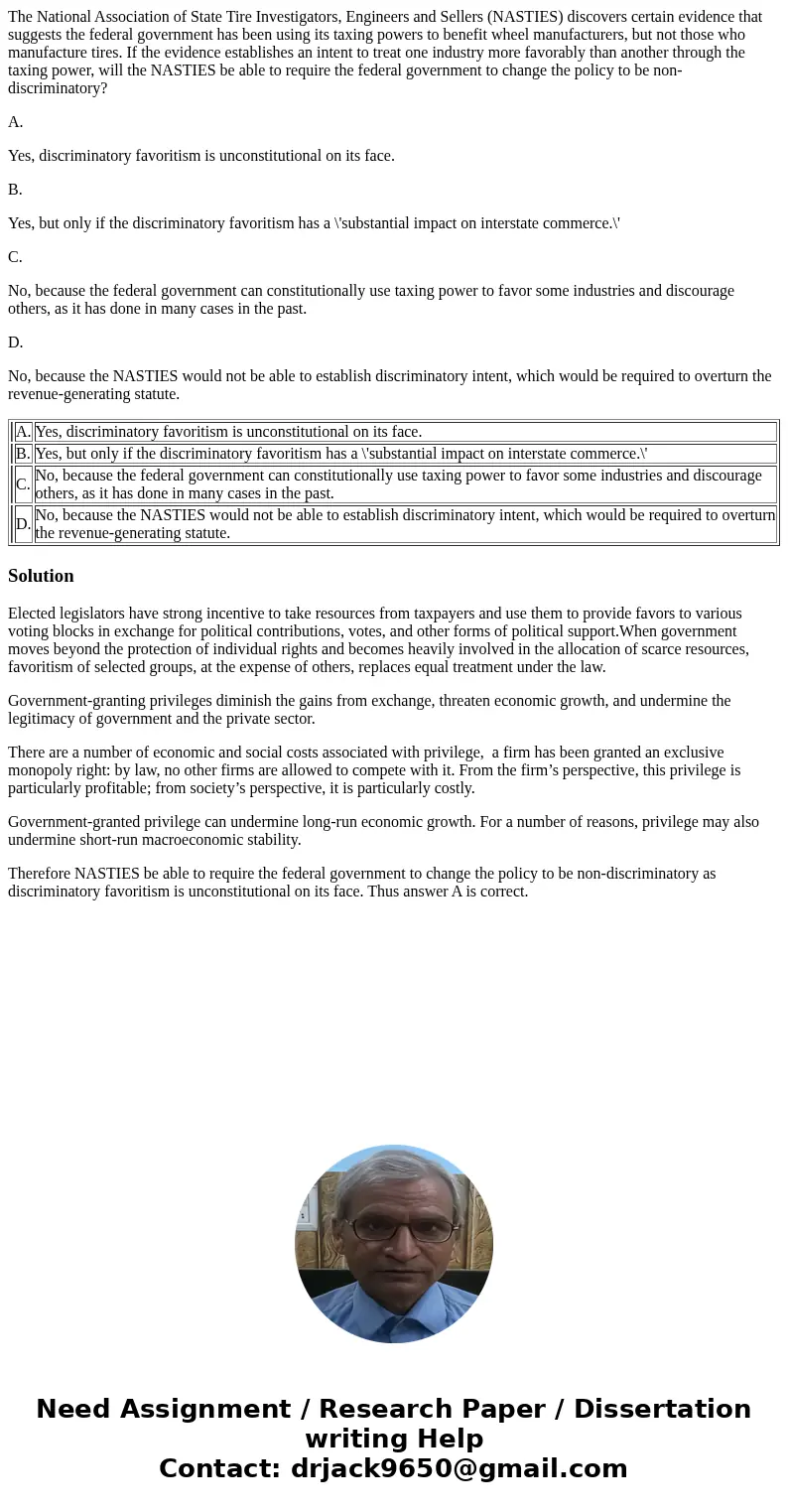The National Association of State Tire Investigators Enginee
The National Association of State Tire Investigators, Engineers and Sellers (NASTIES) discovers certain evidence that suggests the federal government has been using its taxing powers to benefit wheel manufacturers, but not those who manufacture tires. If the evidence establishes an intent to treat one industry more favorably than another through the taxing power, will the NASTIES be able to require the federal government to change the policy to be non-discriminatory?
A.
Yes, discriminatory favoritism is unconstitutional on its face.
B.
Yes, but only if the discriminatory favoritism has a \'substantial impact on interstate commerce.\'
C.
No, because the federal government can constitutionally use taxing power to favor some industries and discourage others, as it has done in many cases in the past.
D.
No, because the NASTIES would not be able to establish discriminatory intent, which would be required to overturn the revenue-generating statute.
| A. | Yes, discriminatory favoritism is unconstitutional on its face. | |
| B. | Yes, but only if the discriminatory favoritism has a \'substantial impact on interstate commerce.\' | |
| C. | No, because the federal government can constitutionally use taxing power to favor some industries and discourage others, as it has done in many cases in the past. | |
| D. | No, because the NASTIES would not be able to establish discriminatory intent, which would be required to overturn the revenue-generating statute. |
Solution
Elected legislators have strong incentive to take resources from taxpayers and use them to provide favors to various voting blocks in exchange for political contributions, votes, and other forms of political support.When government moves beyond the protection of individual rights and becomes heavily involved in the allocation of scarce resources, favoritism of selected groups, at the expense of others, replaces equal treatment under the law.
Government-granting privileges diminish the gains from exchange, threaten economic growth, and undermine the legitimacy of government and the private sector.
There are a number of economic and social costs associated with privilege, a firm has been granted an exclusive monopoly right: by law, no other firms are allowed to compete with it. From the firm’s perspective, this privilege is particularly profitable; from society’s perspective, it is particularly costly.
Government-granted privilege can undermine long-run economic growth. For a number of reasons, privilege may also undermine short-run macroeconomic stability.
Therefore NASTIES be able to require the federal government to change the policy to be non-discriminatory as discriminatory favoritism is unconstitutional on its face. Thus answer A is correct.

 Homework Sourse
Homework Sourse